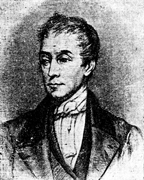Auckland, Lord
Auckland, Lord (1784-1849) Governor General of India from 1836 to 1842. He was born in Beckenham, Kent on 25 August 1784 and educated at Eaton, and Christchurch, Oxford. In 1836 Lord Auckland was appointed Governor General of India. As Governor General he intended to continue bentinck's internal policy and succeeded to some extent and took certain steps for the promotion of education and the study of western science by the Indians and developed the irrigation policy initiated by Bentinck. Under order from the Directors, Auckland abolished the pilgrim tax and ended all official control over religious endowments. But he failed to deal with the devastating famine, which overtook northern India in 1838.

Towards the native states his conduct was not unquestionable. The Raja of Satara was deposed in favour of his brother on the charge of intriguing with the portuguese against the Company. Karnal was annexed to the British Indian Empire deposing the nawab for conspiracy against the Company. He suppressed a rebellion in Oudh in 1837 and intended to force on Nasiruddin Haidar, the new nawab of Oudh, a treaty that required him to pay a heavier subsidy. The Directors disallowed the treaty but he did not inform the nawab about this. Afghan affairs, however, chiefly attracted Auckland’s attention. His involvement in the first Anglo-Afghan War (1838-1842) did not earn him any credit.
He deposed pro-Russian Dost Muhammad Khan (He became the Amir of Afganistan in 1823), and replaced him by pro-British Shah Suja as the Amir of Afghanistan. The Afghan war led to the unnecessary breach in a recently signed treaty with the Amirs of Sind. Conducted in a callous way the war ended in a great tragedy for the British.
Auckland was recalled, and left for England on 12 March 1842. He was made Baron Eden of norwood in the County of Surrey, and Earl of Auckland in 1839 and died on 1 January 1849. [KM Mohsin]
